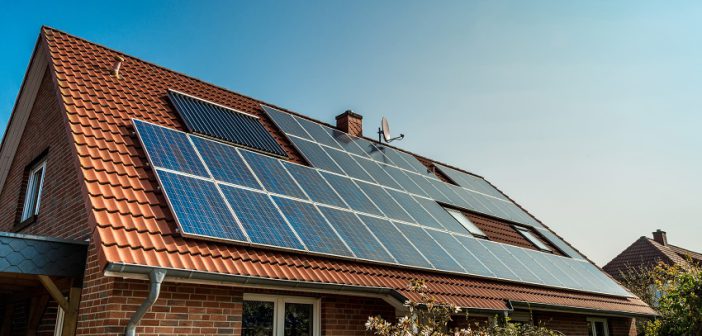Solar energy is useful. You can use it to power many facilities, including your home. However, is it possible to power an entire house using just the power of the sun’s rays?
Buying and installing some of the best solar panels can certainly save money on your energy bills in the long term. That doesn’t necessarily mean you can power an entire home using them, though. Let’s explore this concept in greater detail right now.
Yes, It’s Possible
The short answer to the question of whether you can power your entire home with just solar energy is that yes, you can. However, it won’t be easy, and few individuals actually do it. What’s much more popular is to power part of your home using energy from the sun’s rays.
What System Type Are You Using?
The system of solar energy collection you’re using will go a long way toward determining whether you can power your entire home with it or just part of it. You can either have an off-grid system or one that is essentially a grid-tied solar apparatus.
If you have an off-grid system, that is the one which is completely independent of any power but that of the sun. The grid-tied system, which is a lot more common at the moment, allows you to transfer any excess electricity to the grid. You do so in exchange for credits.
Your Agreement with the Utility Company
You may also have a utility company in your area with which you can partner if you’re installing solar panels. If you do, that means you’re still connected to the grid.
The utility company is probably charging you a small amount for the right to have that connection. However, what they will charge you for this privilege will be minuscule compared to what they would ask from you if you were not using any solar panels at all.
The Weather
You must also understand that if the sun is not shining, then your solar panels are not able to collect any energy at that moment. Rainy days are the reason why some households elect to stay connected to the grid, even if they’re getting most of their power from the sun.
This is why it also matters where you live. If you reside in a part of the country that does not get as much sun, becoming dependent entirely on solar energy might not be the best idea.
Your Roof and Shade
The size and shape of a home’s roof will certainly come into play if you want to know whether it is realistic to rely only on solar power for your home. You can only install as many panels as your roof’s pitch, orientation, and size will allow.
You must also think about how much shade your roof is getting if you have installed solar panels. If you live in a house that is overshadowed by trees, keep in mind that your panels will not have as much access to the sun.





The seafood bar at PJ Clarke’s is a must-try for seafood lovers! The shrimp cocktail was massive and incredibly fresh, while the lobster rolls were simply divine. The service was attentive and friendly, adding to the overall experience. If you’re in the area, definitely visit for a fantastic seafood feast!
Special thanks to Henryclarkethicalhacker @ gmail com for exposing my cheating husband. Right with me I got a lot of evidences and proofs that shows that my husband is a f*** boy and as well a cheater ranging from his text messages, call logs, WhatsApp messages, deleted messages and many more, All thanks to Henryclarkethicalhacker @ gmail com or text, whatsapp, +17372340552, if not for him I will never know what has been going on for a long time. Contact him now and thank me later. Stay safe.
Thanks for the useful information
Yes, it is possible to power an entire home with solar energy alone, but it requires a well-designed system. Solar panels can generate electricity during the day, while energy storage is crucial for nighttime use. To store this energy efficiently, 48v golf cart batteries are often used because they provide a cost-effective and reliable option for residential solar systems. These batteries store excess solar energy during the day, allowing homeowners to draw from them when the sun isn’t shining. However, the size of the solar array and battery bank must be sufficient to meet the home’s energy needs.